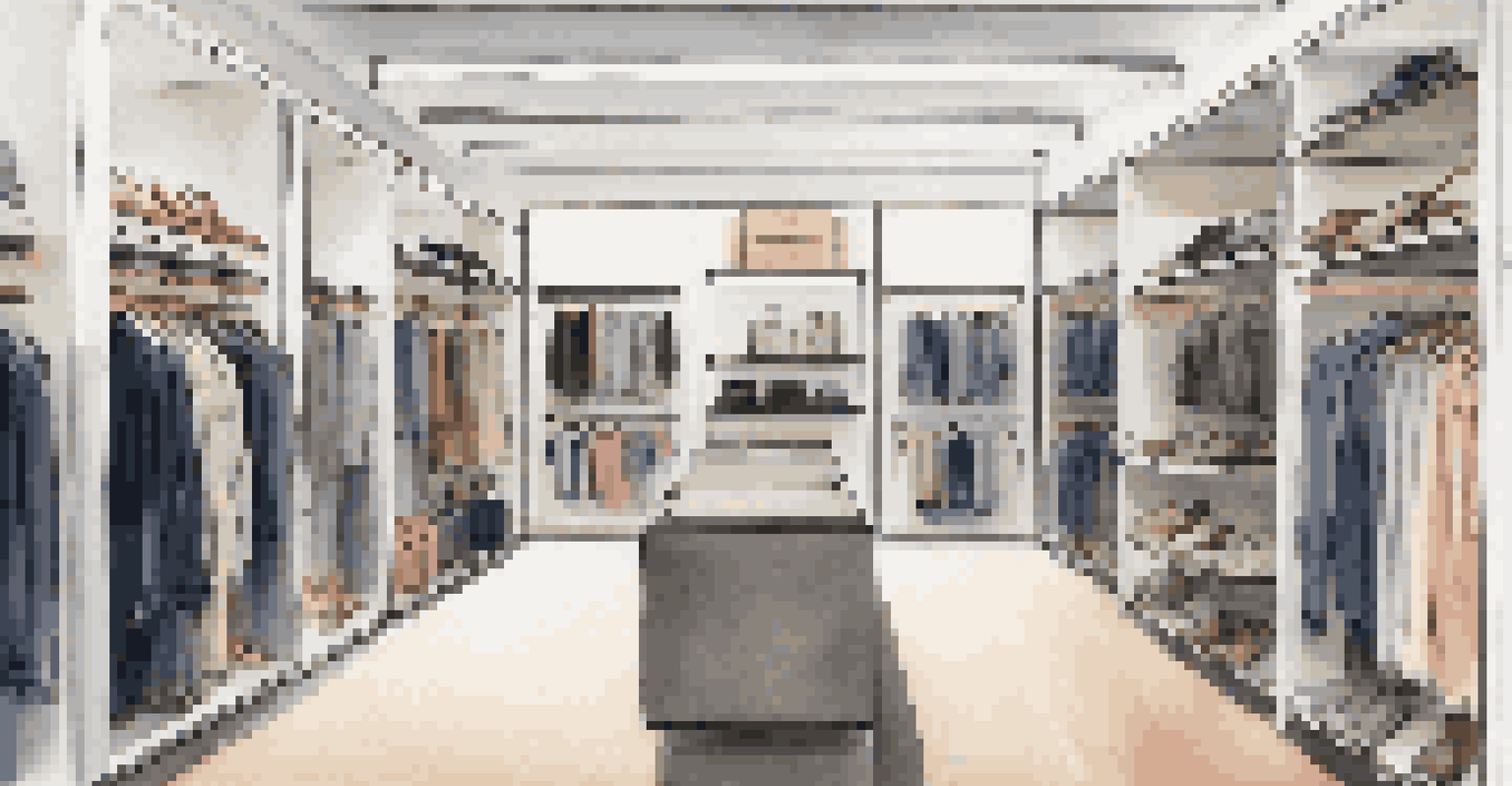The Challenges of Scaling Luxury Fashion Rental Businesses

Understanding the Luxury Fashion Rental Market Landscape
The luxury fashion rental business has gained traction in recent years, appealing to consumers who want high-end style without the hefty price tag. This market is characterized by a unique blend of exclusivity and accessibility, making it a fascinating space for entrepreneurs. However, understanding the nuances of this market is crucial for long-term success.
Fashion is the armor to survive the reality of everyday life.
As more players enter the arena, competition intensifies, and brands must differentiate themselves through quality, service, and curated selections. Navigating consumer preferences and trends is essential, as today's luxury shopper is often well-informed and seeks authentic experiences. Additionally, the growing focus on sustainability adds another layer of complexity to the market.
Ultimately, a comprehensive understanding of the luxury fashion rental landscape allows businesses to identify opportunities while mitigating risks. By recognizing the key drivers of consumer behavior, brands can tailor their approaches to meet the demands of this dynamic industry.
Building a Robust Supply Chain for Rentals
A well-structured supply chain is the backbone of any successful rental business. In the luxury fashion sector, this means sourcing high-quality items that not only meet customer expectations but also withstand the rigors of multiple rentals. This can be particularly challenging, as maintaining the pristine condition of luxury garments requires careful handling and logistics.

Moreover, establishing relationships with designers and luxury brands is essential for securing inventory. These partnerships can provide exclusive access to sought-after pieces, enhancing the brand's appeal. However, negotiating these relationships often involves navigating complex contractual agreements and understanding brand standards.
Navigating Consumer Preferences
Understanding shifting consumer values, like sustainability, is crucial for luxury fashion rental businesses to build loyalty.
In addition to sourcing, effective inventory management is crucial. Businesses must find the right balance between having enough variety to attract customers and limiting excess inventory that can lead to increased costs. By investing in technology and logistics, luxury fashion rental companies can streamline their supply chains and improve overall efficiency.
Adapting to Consumer Trends and Preferences
Consumer preferences in the luxury rental market are ever-evolving, making adaptability a critical component of success. Today's luxury shoppers are motivated by not just aesthetics but also by values such as sustainability and ethical consumption. This shift means rental businesses must stay attuned to these trends to remain relevant.
Sustainability is not a trend; it is a responsibility.
For instance, many consumers now prioritize brands that focus on eco-friendly practices. This could mean incorporating sustainable materials, promoting circular fashion, or even offsetting carbon footprints. By aligning with these values, rental businesses can create a loyal customer base that feels good about their choices.
Additionally, personalizing the shopping experience through data-driven insights can enhance customer satisfaction. By leveraging technology to analyze purchasing behaviors, companies can tailor their offerings and marketing strategies, ensuring they resonate with their target audience and foster long-term relationships.
Maintaining Quality Control and Customer Satisfaction
In the luxury sector, quality control is paramount. Customers expect items to be in pristine condition, and any slip in quality can tarnish a brand's reputation. Implementing stringent quality checks before and after rentals is essential for maintaining high standards and ensuring customer satisfaction.
Furthermore, customer service plays a critical role in the rental experience. From easy returns to responsive support, providing exceptional service can set a brand apart. Addressing customer concerns promptly and transparently can build trust and encourage repeat business.
Ensuring Quality and Service
Maintaining high quality and exceptional customer service is vital to uphold a luxury brand's reputation.
It's also important to gather feedback and continuously improve the rental process. Regularly assessing customer experiences can help businesses identify areas for enhancement, ensuring they not only meet but exceed expectations in a competitive market.
Navigating Logistics and Shipping Challenges
Logistics and shipping are significant challenges for luxury fashion rental businesses. Ensuring that garments are delivered in perfect condition and on time requires careful planning and execution. Any delays or damages can lead to dissatisfied customers and potential loss of business.
Utilizing technology can streamline these logistics processes. For instance, tracking systems can provide real-time updates, allowing customers to know exactly when to expect their items. Additionally, investing in quality packaging can help protect luxury garments during transit, reducing the likelihood of damage.
Moreover, as businesses scale, they may encounter complications related to shipping costs and logistics partners. Developing relationships with reliable carriers and exploring options for bulk shipping can help mitigate these challenges, ensuring a smooth rental experience for customers.
Overcoming Marketing and Brand Awareness Hurdles
Marketing plays a pivotal role in the growth of luxury fashion rental businesses. Creating brand awareness in a crowded marketplace requires innovative strategies that resonate with the target audience. This could involve leveraging social media, influencer partnerships, and content marketing to showcase offerings and engage potential customers.
Additionally, storytelling is an effective way to connect with consumers emotionally. Sharing the narratives behind the garments, such as their craftsmanship or the designers' vision, can create a deeper connection and elevate the brand's perceived value. This strategy can also foster a sense of community among customers who share a passion for luxury fashion.
Streamlining Logistics Efforts
Efficient logistics and shipping processes are essential to ensure timely delivery and protect luxury garments during transit.
However, measuring the effectiveness of marketing efforts can be challenging. Businesses must analyze data to determine which channels drive traffic and conversions, allowing them to refine their strategies over time. By continuously adapting their marketing approach, luxury rental brands can enhance visibility and attract a loyal customer base.
Managing Financial Sustainability in a Competitive Market
Financial sustainability is a pressing concern for luxury fashion rental businesses, especially as they scale. High operational costs, including inventory acquisition, logistics, and marketing, can quickly eat into profits. Establishing a clear financial strategy is essential for long-term success in this competitive landscape.
Moreover, pricing strategies must reflect both the value of the garments and the costs of maintaining quality service. Offering tiered pricing or subscription models can help attract a wider range of customers while ensuring profitability. Understanding customer willingness to pay is crucial for setting prices that balance competitiveness with sustainability.

Furthermore, exploring partnerships and collaborations can provide additional revenue streams. Collaborating with influencers or hosting exclusive events can enhance brand visibility and attract new customers, ultimately contributing to the financial health of the business.